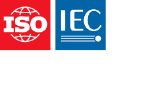Тезис
ISO/IEC 19796-1:2005 is a framework to describe, compare, analyse, and implement quality management and quality assurance approaches. It will serve to compare different existing approaches and to harmonize these towards a common quality model. The main aspect is the Reference Framework for the Description of Quality Approaches (RFDQ).
ISO/IEC 19796-1:2005 consists of the following items:
- description scheme for quality management;
- process model defining the basic processes to be considered when managing quality in the field of ICT-supported learning, education, and training;
- conformance statement for the description format.
For a better understanding of ISO/IEC 19796-1:2005, several annexes show samples of its use. The annexes are based on the French 'Code of Practice in e-Learning' (AFNOR Z 76-001) and German DIN PAS 1032-1. Additionally, an annex on Reference Quality Criteria (RQC) is included. These criteria serve as reference criteria for the analysis and evaluation of learning resources and scenarios. These criteria are also not a quality assessment approach itself, but a framework to compare different quality assurance and quality assessment approaches. Additionally, several examples of use are shown, such as specific quality objectives (e.g. metadata quality) and guidelines.
ISO/IEC 19796-1:2005 is only the first step towards a harmonized quality framework; the next step is to define quality instruments and metrics in order to provide a complete quality approach. It is planned to begin the work on the full quality approach as the second part of the QA activity.
Общая информация
-
Текущий статус: ОтозваноДата публикации: 2005-11Этап: Отмена международного стандарта [95.99]
-
Версия: 1
-
Технический комитет :ISO/IEC JTC 1/SC 36
- RSS обновления
Жизненный цикл
-
Сейчас
-
00
Предварительная стадия
-
10
Стадия, связанная с внесением предложения
-
20
Подготовительная стадия
-
30
Стадия, связанная с подготовкой проекта комитета
-
40
Стадия, связанная с рассмотрением проекта международного стандарта
-
50
Стадия, на которой осуществляется принятие стандарта
-
60
Стадия, на которой осуществляется публикация
-
90
Стадия пересмотра
-
95
Стадия, на которой осуществляется отмена стандарта
-
00
-
Пересмотрен
ОпубликованоISO/IEC 40180:2017

